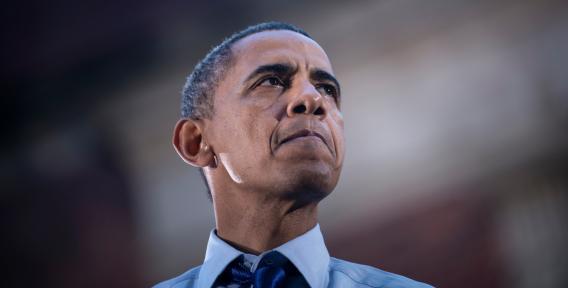Here I could cop a bunch of Nate Silver numbers and analysis, or I could direct you to two stories. First, this Business Insider story about the Gallup poll numbers from October 5, day two in the aftermath of the first presidential debate.
President Barack Obama gained a point on Mitt Romney in the Gallup daily tracking poll and now leads the Republican nominee 50 percent to 45 percent.
The seven-day rolling average includes the first day of polling after the presidential debate, after which Obama earned lackluster reviews from both viewers and pundits.
Next, this Business Insider story about today’s Gallup poll numbers, day two in the aftermath of the second presidential debate.
Mitt Romney widened his lead over President Barack Obama to seven points today, giving the Republican challenger his biggest lead yet in the poll and putting him well outside the margin of error.
The seven-day tracking poll of likely voters showed Romney at 52 percent, up from 51 percent Wednesday. Obama’s numbers stayed static at 43 percent.
Today’s results — which include polling from last Thursday through yesterday — are the first round of national poll numbers that factor in the second presidential debate.
It was only 13 days ago that the rolling tracking poll failed to immediately capture the Romney bounce. And yet the entire Internet paints itself blue and runs around naked because the exact same thing just happened in poll numbers that follow a winning (though not overwhelming) Obama debate. This, dear reader, is why I don’t sprint over to the CMS and post breaking-news updates on the tracking polls every day. This isn’t insider information. This isn’t data that sheds more light on a campaign trend. It’s traffic candy, something for one side to freak out over and one side to gloat over.
I’ll revisit this thinking if, in a few days, all polls reveal an unstoppable Romney surge. Maybe all of the rest of the data, the campaign moves, and the spending patterns are wrong, and the whole election can be predicted by a daily survey. Maybe not.
